From Warsaw to Paris: Negotiating Global Climate Change
2012
May 21st
At The German Science Center, 11 Al-Saleh Ayoub Street, Zamalek, Cairo
The 20th Cairo Climate Talks brought together experts, government officials, and other stakeholders from Germany and Egypt to discuss crucial and often contentious negotiations to reach a global agreement on climate change.
“From Warsaw to Paris: Negotiating Global Climate Change” opened a critical discussion on the failures and successes of the last United Nations Framework Convention on Climate Change (UNFCCC) Conference of the Parties (COP 19) in Warsaw, Poland in 2013, and the goals for an international agreement at the upcoming talks in Paris (COP 21) in 2015.
Unlike the 1997 Kyoto Protocol, which imposed greenhouse gas emissions reductions on wealthy, developed nations only, the COP 21 in Paris is expected to go a step further and include contributions by all nations that will take effect in 2020. As countries around the world work to prepare their contributions, they face a host of difficult questions, such as what types of emissions reductions targets each state should commit to, how binding agreements can be reached, implemented and enforced, and how the financial cost of climate change mitigation and adaptation can be fairly distributed.
H.E. Michael Bock, the German Ambassador to Egypt, opened the event, urging Germany, Egypt and all nations to come together to reach a meaningful agreement in Paris before the harmful effects of climate change become irreversible. “I think this chance to get our act together is probably the last chance to act in common on an international level,” he told an audience of more than 150 officials, NGOs, scientists, press and public. “We all — including Egypt, Germany and other countries — have committed to put forward contributions in the first quarter of next year. This is the reason it is high time for all of us to prepare to get the numbers right and define sectors and measures where greenhouse gas emissions can be reduced in an effective and efficient way.”
H.E. Dr. Laila Rashed Iskandar Kamel, Egyptian Minister of State for Environmental Affairs, urged Egypt to be forward-thinking and focus on a long-term vision which would include further development of one of its greatest natural resources — solar energy — and other renewable energy sources, rather than turn to coal or other fossil fuel imports.
Opening remarks were followed by a panel discussion featuring H.E. Ambassador Mahmoud Samir Samy, Deputy Assistant Foreign Minister for Environment and Sustainable Development, Egyptian Ministry of Foreign Affairs; Dr. Camilla Bausch, Senior Management and Senior Fellow at the Ecologic Institute in Germany; and Eng. Lama El Hatow, Co-founder of the Egyptian National Climate Change Coalition and a Climate Policy Officer for IndyACT.
Ambassador Samy, who is Egypt’s lead negotiator at the UNFCCC international climate change negotiations, said the government is in the process of gathering emissions data from each sector before preparing its plan for COP 21. “We on our own are seriously lacking a lot to get to the point where we can decrease emissions and at the same time keep the economy going,” he said, citing funding and know-how among the obstacles Egypt faces in implementing green technology and energy efficiency measures. The government also needs to do more to increase public awareness of the disastrous potential impacts of climate change and how they can conserve energy and water use at home, Ambassador Samy said.
In response to developing nations’ calls for funding, Dr. Bausch said that if countries such as Egypt put forth clear visions and goals for climate change measures or environmentally-friendly initiatives, Germany, as well as other European nations and multilateral institutions such as the UNFCCC or the World Bank, offer opportunities for financial and technical support.
Climate change negotiators from various states should not lose sight of the people they are representing and the very real impacts on their daily lives, said Ms. El Hatow, who has represented civil society groups at international climate change negotiations. Farmers in Egypt, for example, are already losing a significant portion of their annual harvest to rising temperatures. “Ironically every time we’ve gone to negotiations it’s on the brink of a natural disaster, but even with those, we still see this deadlock [of parties] and for me coming from civil society it’s very frustrating,” she said. “Domestically we need to be accountable in terms of where our financing mechanisms are going … there are things we can do domestically to incentive projects and one of the things we need to do is incentivize renewable energy by removing fossil fuel subsidies.”
Dr. Bausch agreed that governments around the world need to reach compromises to reduce emissions and mitigate climate change.
“If you don’t deliver, it’s the people who are going to pay… I hope we’ll be clever in going to Paris with ambition and also a feeling of what we can achieve together and that will not repeat the mistakes of the Copenhagen conference in 2009,” Dr. Bausch concluded.
Meet our Panelists
H.E. Ambassador Mahmoud Samir Samy
Deputy Assistant Foreign Minister for Environment and Sustainable Development, Egyptian Ministry of Foreign Affairs
Dr. Camilla Bausch
Senior Management and Senior Fellow at the Ecologic Institute
Eng. Lama el-Hatow
Environmental Engineer, Climate Policy Officer for IndyACT
H.E. Michael Bock
Ambassador of the Federal Republic of Germany to the Arab Republic of Egypt
H.E. Dr. Laila Rashed Iskandar Kamel
Egyptian Minister of State for Environmental Affairs
Meet our Moderators
Mrs. Amira El Ahl
Mr. Ahmed Sedky
Venue / location
At The German Science Center, 11 Al-Saleh Ayoub Street, Zamalek, Cairo
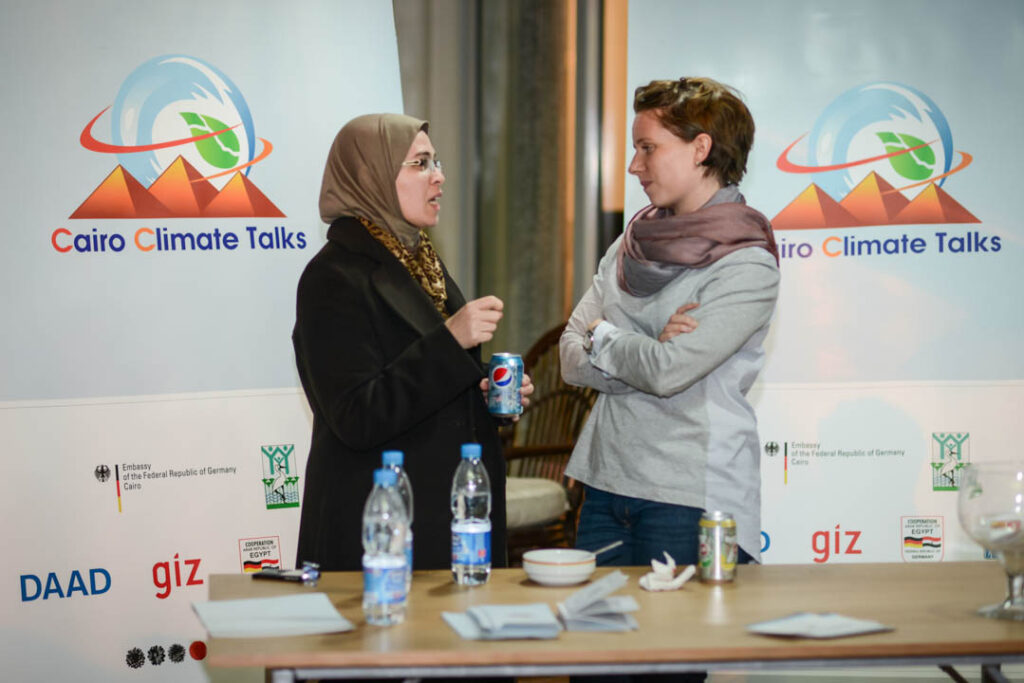
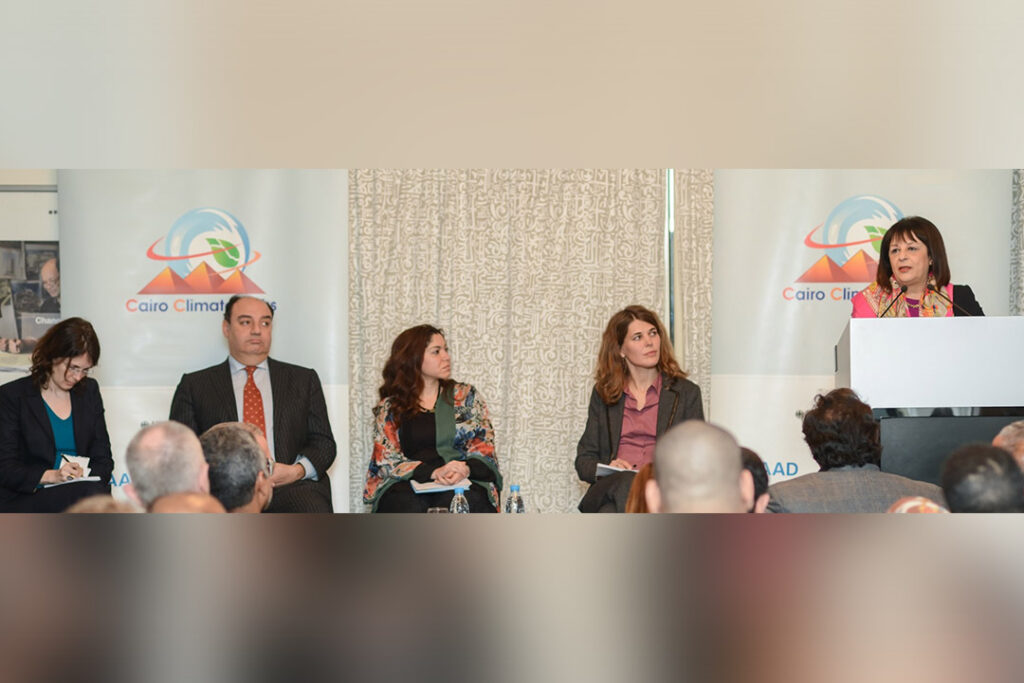
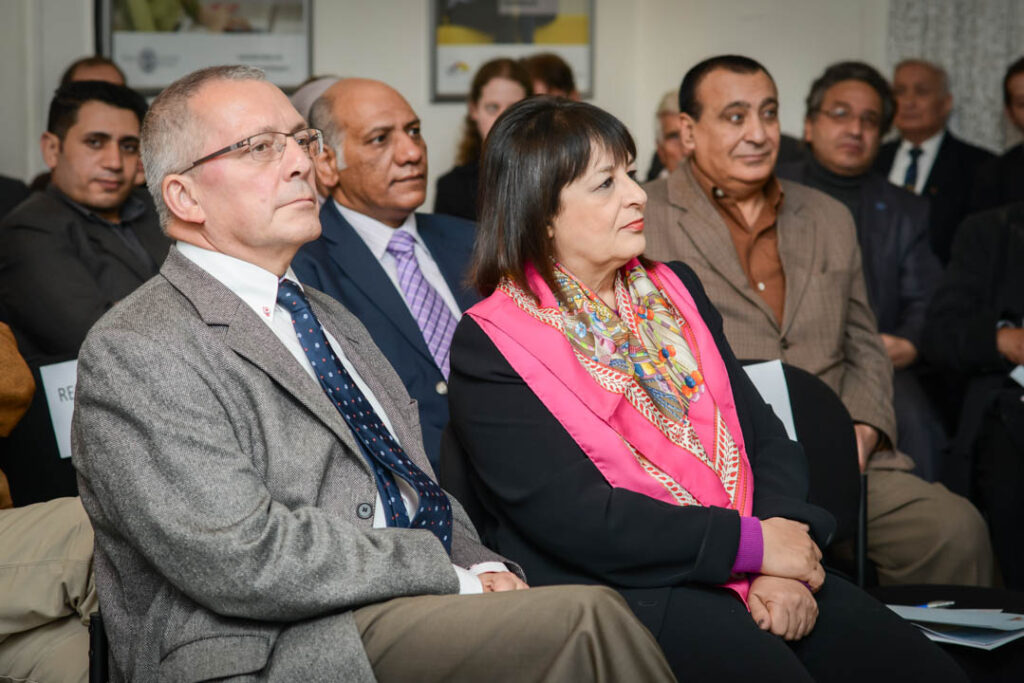
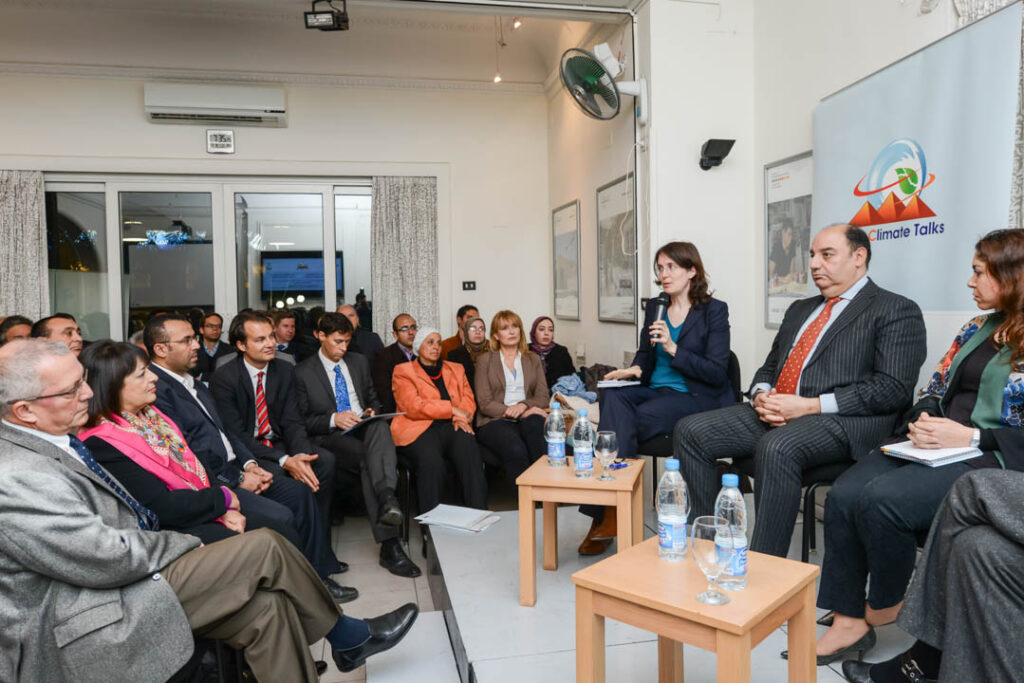
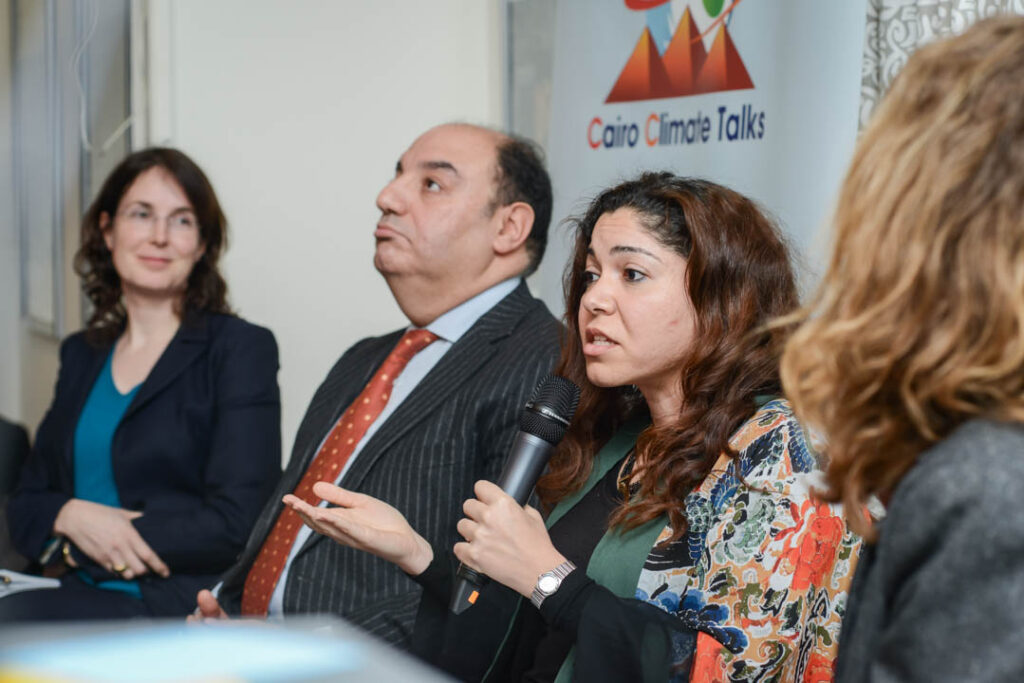
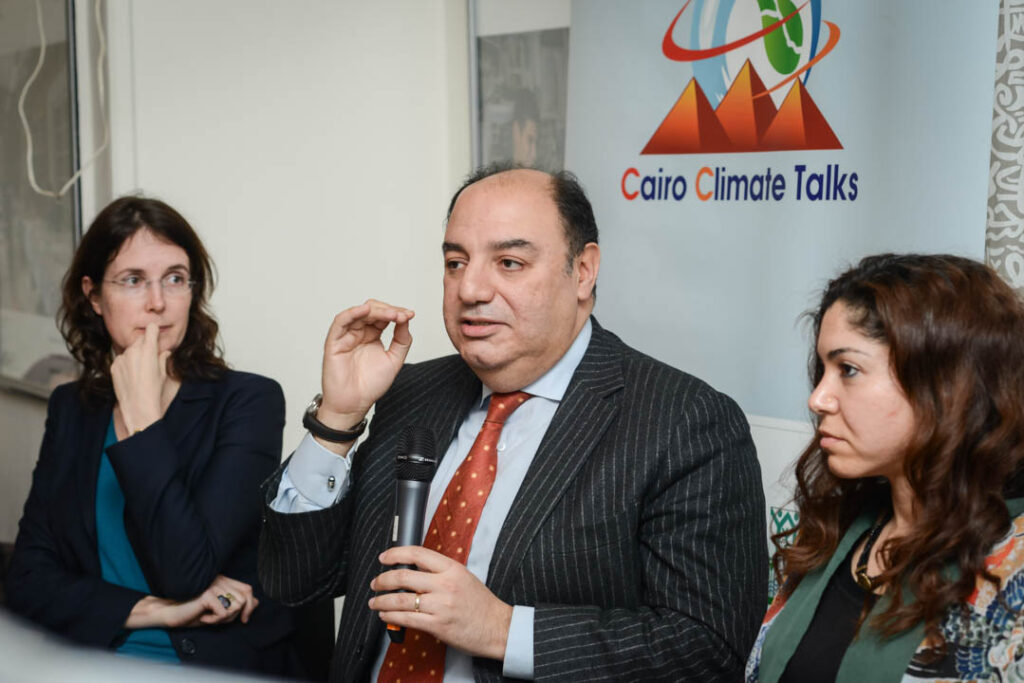
Are you interested? Don’t miss out by registering to our events. We hope to see you there.
